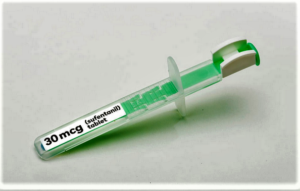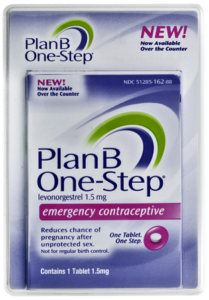- Insulin drugmakers under scrutiny for pricing, patent practices (biopharmadive.com)
Insulin drugmakers face new criticism for their pricing and use of patents on diabetes treatments, as two reports...shined a light on the pharma companies' business practices...Congressional Diabetes Caucus co-chairs attacked the current system as "unfairly putting insulin out of reach, placing millions of lives at risk." Their report makes 11 policy recommendations for Congress, ranging from encouraging value-based contracts to requiring more disclosure on rebates and list prices to addressing patent extensions...The Initiative for Medicine, Access and Knowledge...unveiled an analysis of the patents protecting Sanofi's top-selling diabetes treatment Lantus, finding nearly all of patent applications for the drug were filed by the French pharma after it was approved...These have extended Lantus' patent protection to 2031…
- Flushed Pharmaceuticals Are Likely Drugging Stream Dwellers Like The Platypus (blogs.discovermagazine.com)A diverse suite of pharmaceuticals contaminates stream and riparian food webs (nature.com)
The pharmaceuticals that our bodies don’t use are cleared from our systems and flushed down into sewage systems, processed in water treatment plants, and finally dumped into streams and other waterways...an alarming number of pharmaceutical compounds aren’t filtered out during the treatment process. Research...shows that this might have an even bigger effect on stream ecosystems than anyone expected...A range of drugs used by humans were detected in Australian stream invertebrates and the spiders that eat them. The researchers have reason to worry that this will have compounding effects up the food chain – to stream predators like trout, or Australian favorite the platypus.
- This Week in Managed Care: November 2, 2018 (ajmc.com)
Laura Joszt, Managing Editor at The American Journal of Managed Care. Welcome to This Week in Managed Care from the Managed Markets News Network
- Political donations from opioid-related pharma companies slow down in 2018 (thenevadaindependent.com)
Campaign contributions from pharmaceutical companies named in lawsuits filed by the state and several local governments have largely dried up this year...The pharmaceutical industry — long one of the biggest political players in the country, donating tens of millions of dollars to candidates and politicians at all levels of government — has contributed less to state-level candidates this election cycle despite contributing nearly $1 million to various candidates and PACs over the past decade...Seven of the 14 pharmaceutical companies implicated in a Clark County opioid lawsuit that had donated more than $934,000 to state level candidates or party committees have been easing off, and only two named companies — Johnson & Johnson and Purdue Pharma — continued to donate any money after those lawsuits were filed...
- 5 election takeaways for pharma (biopharmadive.com)Health care wins and stocks rally as Democrats take control of the US House (cnbc.com)
Democrats won back the House of Representatives in Tuesday's midterm elections, wresting control from Republicans in an outcome that will shape the next two years of Donald Trump's presidency...In congressional campaigns across the country, healthcare emerged as a key issue, with pre-existing conditions and rising prescription drug costs among the most prominently highlighted...there are several outcomes that look clear for drugmakers. Here are five:
- More scrutiny on drug pricing
- But not necessarily major disruption
- Continued action in the states
- Medicaid expansions to add to insured population
- Business as usual at the FDA
- CMS finalizes site neutral payment rule (healthcarefinancenews.com)
The Centers for Medicare and Medicaid Services has finalized site neutral payments in the hospital outpatient prospective payment system and ambulatory surgical center payment system rule...CMS is using site neutral payments to level the playing field between what physician offices and hospital outpatient departments are paid for certain clinical visits...In addition...CMS is expanding its 340B policy by extending the payment change to additional off-campus provider-based hospital outpatient departments that are paid under the physician fee schedule...Today's rule advances competition...for providers so they can compete for patients on the basis of quality and care...The final policies remove unnecessary and inefficient payment differences so patients can have more affordable choices and options.
- November 2 Pharmacy Week in Review: Narcolepsy Treatment Approved for Pediatric Patients, Study Finds Possible Link Between Thyroid Disease and RA (pharmacytimes.com)
Nicole Grassano, PTNN, Pharmacy Week in Review, this weekly video program provides our readers with an in-depth review of the latest news, product approvals, FDA rulings and more.
- Despite criticism and concerns, FDA approves a new opioid 10 times more powerful than fentanyl (statnews.com)Statement from FDA Commissioner Scott Gottlieb, M.D., on agency’s approval of Dsuvia and the FDA’s future consideration of new opioids (fda.gov)
...the Food and Drug Administration approved an especially powerful opioid painkiller despite criticism that the medicine could be a “danger” to public health. And in doing so, the agency addressed wider regulatory thinking for endorsing such a medicine amid nationwide angst about overdoses and deaths attributed to opioids...The drug is called Dsuvia (sufentanil), which is a tablet version of an opioid marketed for intravenous delivery, but is administered under the tongue using a specially developed, single-dose applicator. These “unique features” make the medicine well-suited for the military and therefore was a priority for the Pentagon, a point that factored heavily into the decision…In discussing the rationale for the approval, however, Gottlieb argued that the different formulation and battlefield needs made it possible for the FDA to have Dsuvia fit into the “overall drug armamentarium.” And while he acknowledged the criticism, he insisted the risk management program, known as a REMS, will ensure the drug is only used in a medically supervised settings...AcelRx...worked with the Defense Department to develop Dsuvia...
- Pharmacies still blocking U.S. teens looking for emergency contraception (reuters.com)Availability and Accessibility of Emergency Contraception to Adolescent Callers in Pharmacies in Four Southwestern States (jahonline.org)
Teens seeking to buy emergency contraception at pharmacies continue to face significant roadblocks…Researchers checking on the accessibility of the “morning after pill” at pharmacies in four Southwestern states found that just 28 percent made it simple and straightforward for teens to purchase the emergency contraception, according to the results published in the Journal of Adolescent Health…Despite the FDA ruling . . . that emergency contraceptives should be sold over-the-counter without age or identification restrictions, this is not being fully implemented into the pharmacy setting as anticipated…
- CVS is testing a membership program as Amazon pushes into prescription drugs (cnbc.com)
CVS is piloting a program in Boston that includes free delivery on most prescriptions and online purchases, access to a pharmacist helpline, a 20 percent discount on all CVS-branded products and a monthly $10 coupon. Called CarePass, a membership costs $48 annually or $5 monthly, less than half the price of a Prime membership...CarePass is a bold attempt to fight Amazon — and may even put the retailer ahead. CarePass bundles prescription drug delivery with everyday items — something Amazon doesn't yet do.










